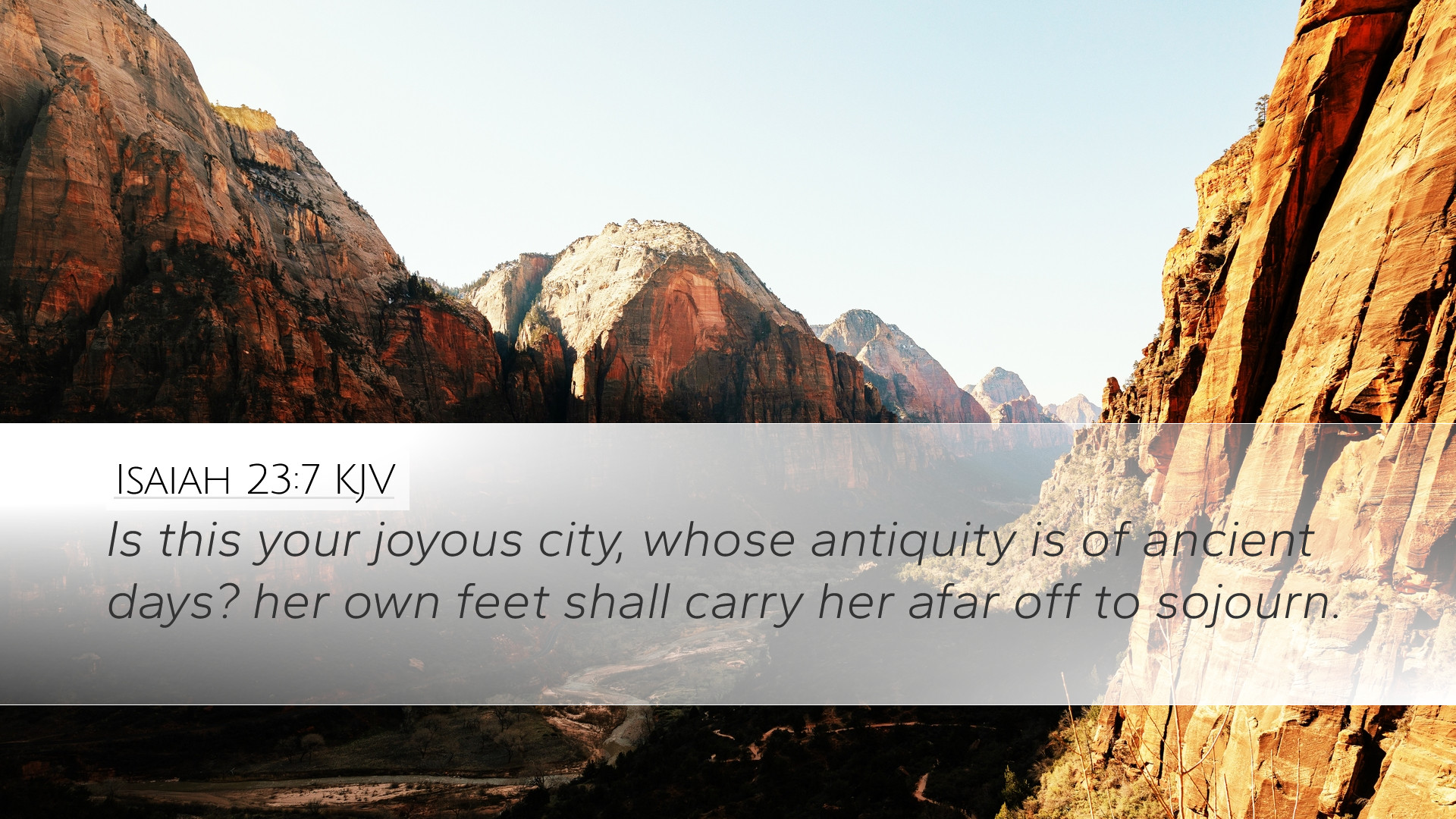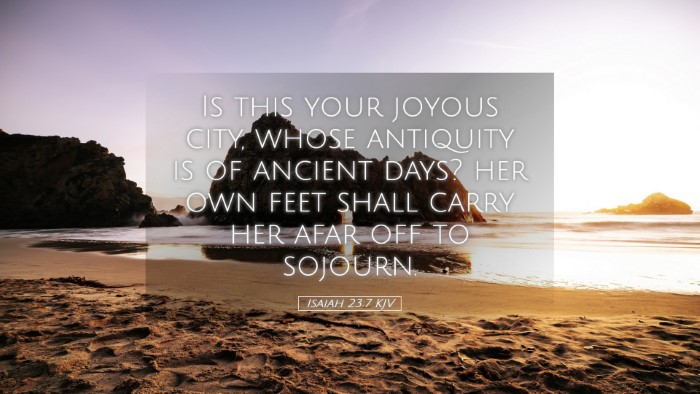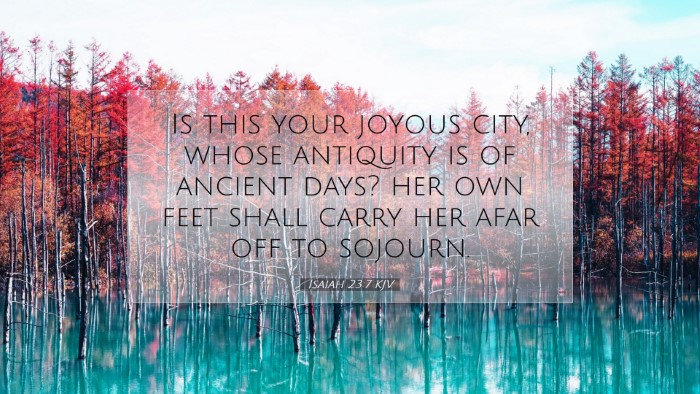Commentary on Isaiah 23:7
Isaiah 23:7 states, "Is this your joyous city, whose antiquity is of ancient days? Her own feet shall carry her afar off to sojourn." This verse centers on the prophetic judgment against Tyre, reflecting the fate of a proud and prosperous city.
This commentary synthesizes insights from various public domain theologians to provide depth and meaning, particularly for pastors, theologians, and students of the Bible.
Contextual Background
The city of Tyre, well-known for its wealth, trade, and idolatry, serves as the focal point of Isaiah's prophecy. Tyre was a significant Phoenician city that dominated maritime trade, showcasing the complexities of its socio-economic structure and religious practices.
The opening words of the verse highlight the irony between Tyre's past glory and its impending judgment. This tension between prosperity and divine judgment is a recurring theme in the scriptures, serving as a reminder of the temporal nature of earthly power.
Theological Insights
-
Joyous City: Matthew Henry notes that Tyre is referred to as a "joyous city," which reflects the superficial happiness of its inhabitants. This joy, however, is misguided and based on temporal wealth rather than divine favor.
-
Ancient Days: Albert Barnes emphasizes the historical significance of Tyre. Its antiquity symbolizes both its deep roots in trade and culture and the eventual consequence of its moral decay.
-
Judgment and Vulnerability: Adam Clarke points out that the reference to Tyre's feet carrying her away indicates the city's vulnerability. Ultimately, despite its grandeur, Tyre would face destruction's inevitable call, highlighting the fickle nature of human achievement.
Lessons for Believers
This passage serves as a powerful reminder for contemporary believers about the dangers of pride and misplaced trust in material success. The prosperity of Tyre blinds its inhabitants to the reality of divine accountability.
The verse calls for introspection among Christians regarding their own lives and the foundations of their joy. Are they rooted in the transient pleasures of this world, or do they build their lives on the eternal promises of God?
Application for Ministry
Pastors may find this text particularly applicable in their preaching and teaching. It underscores the importance of addressing the hearts of congregants, reminding them that earthly success does not equate to divine blessing.
When engaging with communities that emphasize wealth and success, church leaders can use Isaiah 23:7 to catalyze discussions about the true source of joy—faith in God rather than the fleeting pleasures of materialism.
Conclusion
Isaiah 23:7 is a profound reminder of the fleeting nature of human achievement and the ultimate judgment that awaits all who fail to recognize the sovereignty of God. Through the ancient example of Tyre, believers are called to seek a deeper, lasting joy rooted in faith, rather than in the transitory successes of life. The combined insights from Matthew Henry, Albert Barnes, and Adam Clarke provide a rich tapestry of understanding for all who study this essential biblical text.


